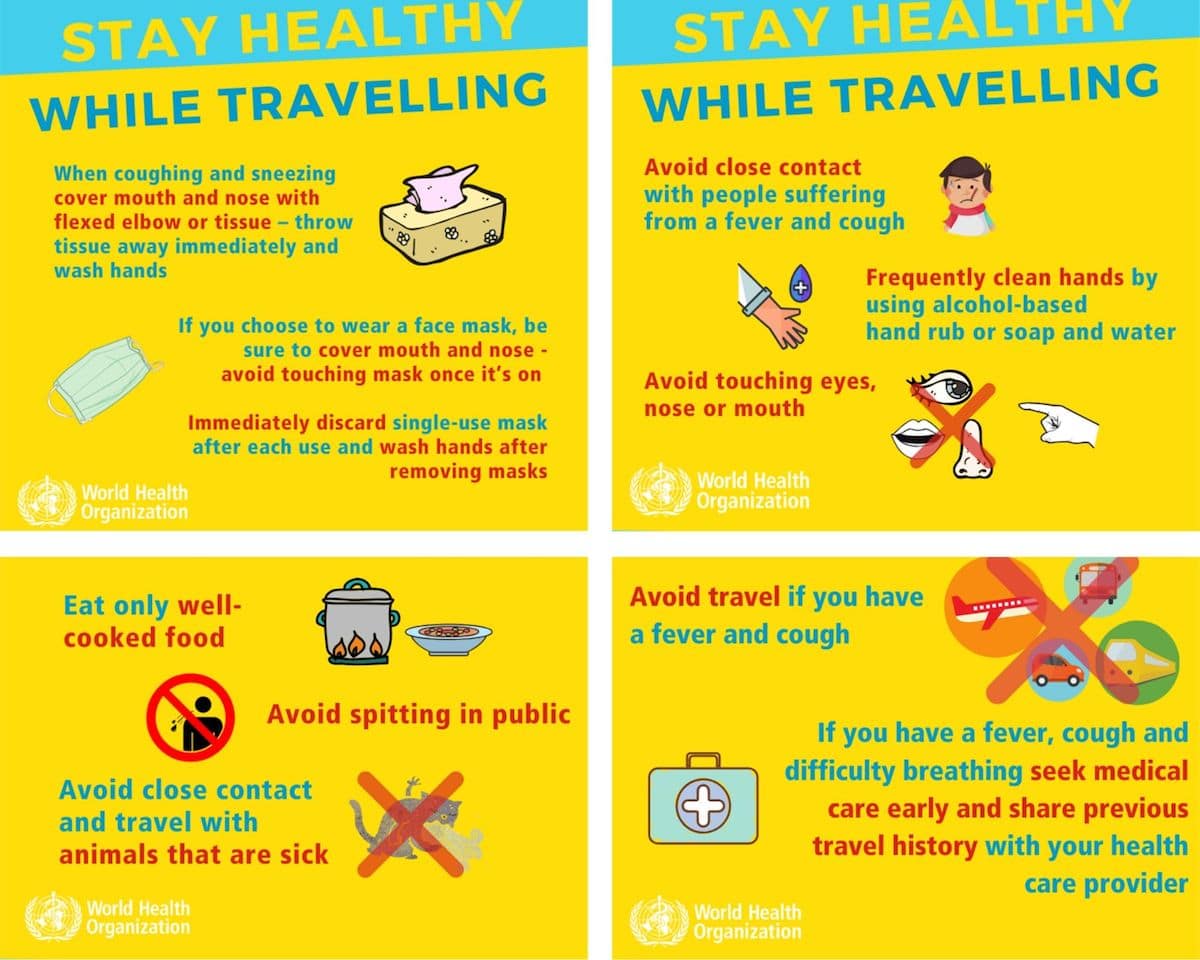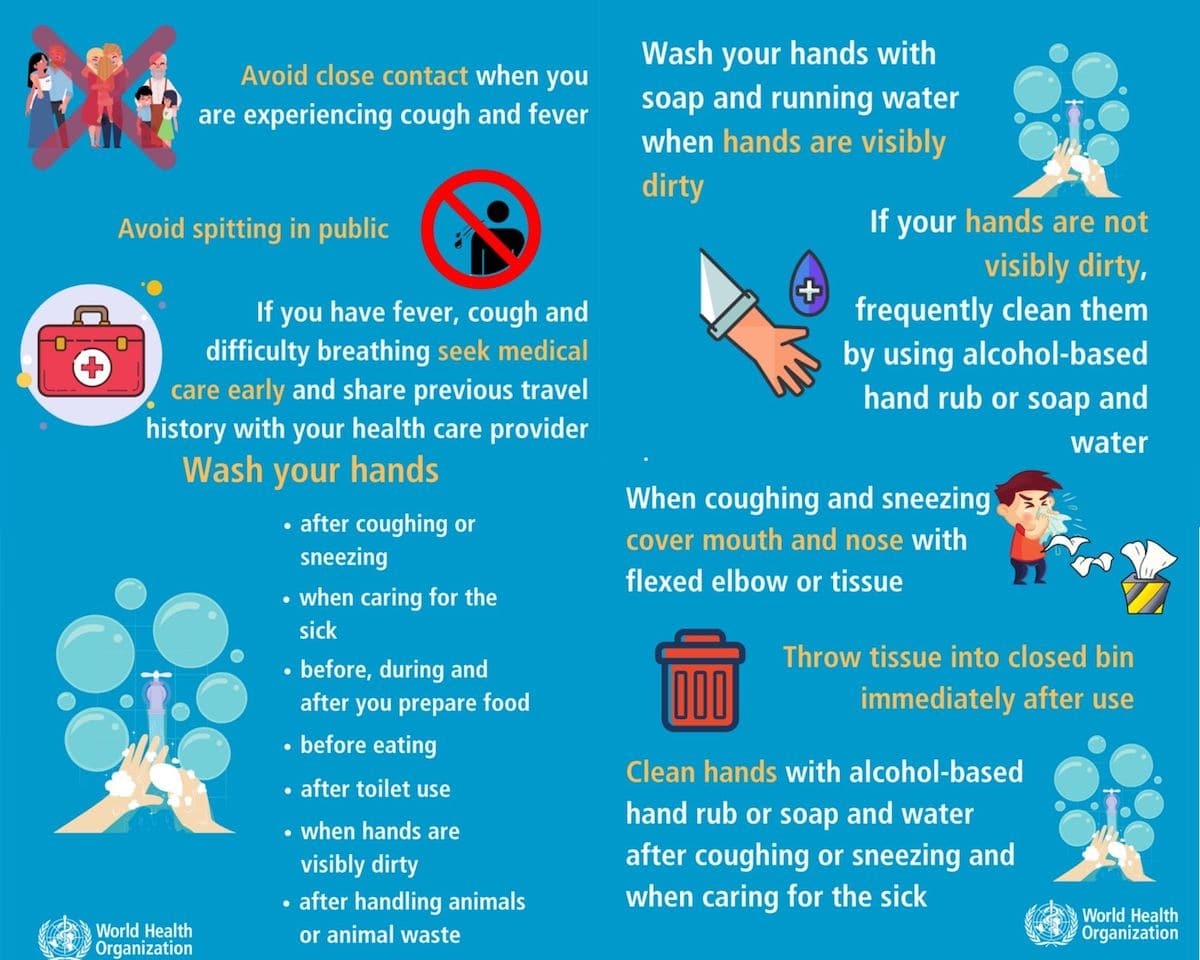Of course we have all heard the reports of the deadly Coronavirus spreading from continent to continent. However, there are many facts that aren’t as commonly shared that we should be aware of. I am going to provide some information straight from the CDC (Centers for Disease Control) and WHO (World Health Organization) so you can know all about the Coronavirus.
Will I contract the Corona Virus?
The Coronavirus, also known as COVID-19, is a virus spread through the respiratory system between animals. Because it is a respiratory disease, this means that it can be spread through respiratory droplets by those infected. This is how diseases like the flu or laryngitis are spread. According to The New England Journal of Medicine, on average, one infected person will infect 2.2 people around them, rounding to 2 people. Though this can seem scary, the majority of those with increased odds are those who are older and have pre-existing medical conditions. This does not mean you are less likely to get it, however. Additionally, as of Monday, March 2, 2020, there have only been 102 cases in the U.S. Therefore, your chances of catching it by staying within the country are low. However, the chances may increase over time as the virus spreads.
What are the symptoms?
Symptoms include:
- Fever
- Cough
- Shortness of Breath
- Pneumonia
A lot of these symptoms are also indicative of the flu, which is also a respiratory disease. Speaking of the flu…
Is the flu more dangerous than the coronavirus?
The coronavirus is actually more deadly than the flu, as the flue kills about 0.1 percent of those infected when the coronavirus kills 2 percent. However, this coronavirus estimate came from Wuhan, the center of the outbreak, and a recent study shows a lower rate of 1.4 percent. Additionally, the virus is more contagious than the flu. As stated before, one infected with the coronavirus can infect 2 other people, but only 1.3 are affected by one infected by the flu. There is also no vaccination for the coronavirus as it is a recent viral development.
How can I prevent the chances of getting sick?
There are always precautions one should take in order to stop the spread of disease, especially one so new and enigmatic as the coronavirus. Here are some tips from CNN Health:
- Wash your hands often with soap and water for at least 20 seconds. Be sure to wash the backs of your hands and under your nails.
- Stay at least 3 feet (1 meter) away from anyone who may be infected.
- If you’re feeling sick, cover your mouth and nose when you cough or sneeze. But don’t use your hands. Use either your bent elbow or a tissue that you throw away immediately.
So, will this become a pandemic?
First off, we should start with the definition of pandemic: occurring over a wide geographic area and affecting an exceptionally high proportion of the population. This definition has come to fit the criteria for the coronavirus. Since this virus is spreading over many countries and multiple continents, it is quite close to being labeled a pandemic. The CDC says, “The fact that this disease [COVID-19] has caused illness, including illness resulting in death, and sustained person-to-person spread is concerning. These factors meet two of the criteria of a pandemic. “This cause for concern shows that this disease is something we should take seriously, and prepare for in the event that it comes to our area.
Key Take-Aways
The coronavirus should be a concern not just for people in other countries, but those living in America. Although the death rates and contagion rates are quite similar to the flu, making it seem less intimidating, it is a new virus that has no vaccine and small treatment options. While the virus shouldn’t call for panic, it should call for caution and awareness. Do your part to help contain this virus by washing your hands, covering your mouth, and being aware of the personal space of others.
Below are some guides and illustrations from the WHO on how to protect yourself and others while traveling.



